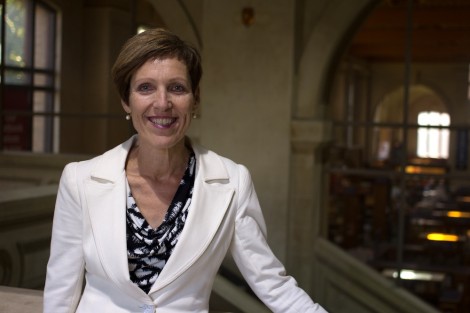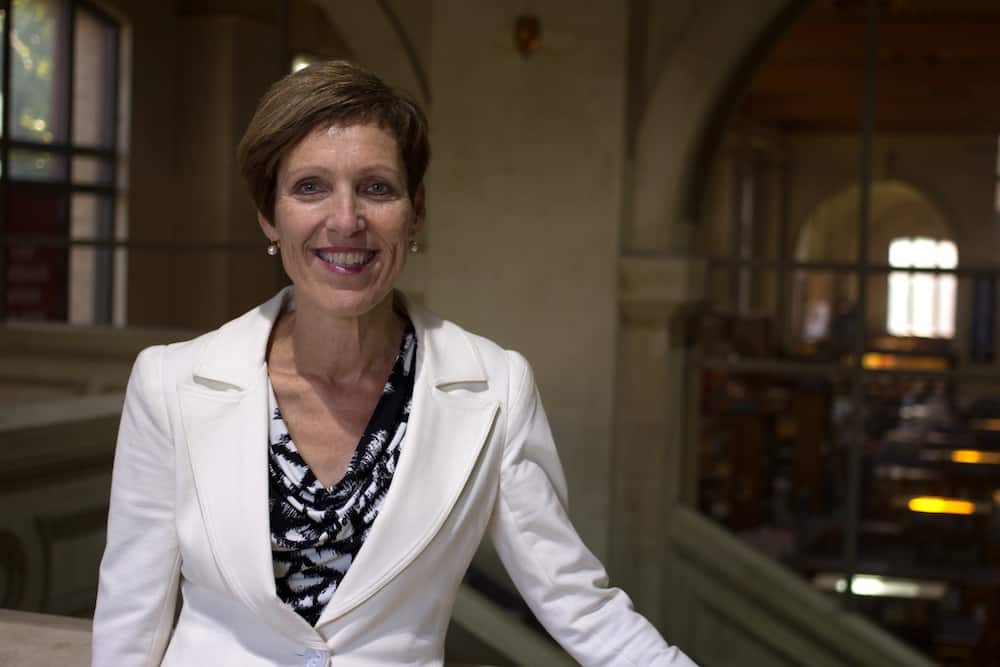Following a $27 million commitment to the mental health of post-secondary students by the provincial government in March 2013, the University of Toronto has revealed to The Varsity its intention to develop a campus-wide mental health strategy.
The Provostial Committee on Mental Health — to be chaired by vice-provost, students Jill Matus — was set to be formally announced in November. The Varsity spoke with key university administrators over several weeks to discuss the proposed composition and purpose of the panel.
The committee, created by assistant vice-president, student life, Lucy Fromowitz and Health and Wellness executive director Janine Robb, seeks to establish a framework to “connect the suite of counselling, psychiatric, and health services offered by the university at a tri-campus level.” It is expected to include “faculty deans, senior staff, UTSC and UTM administrators, academic success workers, the university’s psychiatrist-in-chief Andrea Levinson, and members of accessibility services,” in addition to an undergraduate and graduate representative.

Lucy Fromowitz, U of T’s assistant vice-president, student life. TREVOR KOROLL/THE VARSITY
Similar frameworks were organized at Queen’s University and Brock University in recent years.
Fromowitz, who is responsible for Hart House and 12 distinct departments under the Student Life umbrella, said that the committee seeks to better evaluate gaps in the current system. “We can establish quantitative metrics to ensure that all students are getting equal access to mental health services and so that we can [address] any needs that aren’t being met,” she said.
Robb, a four-year veteran of Health and Wellness who comes from an extensive public health background at the Centre for Addiction and Mental Health (CAMH), outlined the committee’s proposed structure: “We hope to have five working groups that can develop policy proposals to send up to the larger committee for approval. These will focus on selected issue areas like awareness & anti-stigma, education & training, curricula & pedagogy, services & programs, and policies & procedures,” she said. She added that while faculty deans responded optimistically to the proposed committee, not all staff members share this outlook. “This policy development process is also an attempt to break into a group that has been tougher to breach. What we’re talking about here are the staff that are maybe less empathetic towards those with mental illness. Those that think mental illness is best treated by pulling their socks up, or sucking it up. Clearly, [mental illness] is a bigger issue than it was 20 years ago. Our staff and faculty need to know how to work with those who face these challenges,” she said.
Fromowitz pointed out improvements to mental health service delivery over the last five years. “We recognize that it is fundamentally an issue of demand. Students, who certainly deserve to be here but who normally wouldn’t have had the ability to attend university in the past, now have access to the right pharmacology and health services. We as a university have embraced this reality and have attempted to develop a comprehensive plan that puts their needs first,” she said.
Counselling and Psychological Services (CAPS) is a key mental health service at U of T. Part of the goal of the provostial committee will be to assess challenges faced by CAPS and make proposals for its improvement. Student leaders have repeatedly critized CAPS in past years, particulary for long wait times for students who face acute mental health challenges. “Counselling and Psychological Services (CAPS) used to [work] on a first-come-first-serve basis. This was not a good way to operate because students with acute mental health needs wouldn’t get access to the help they needed. Our drive has been to ensure that every new student who goes through the service gets a triage process so that we can identify the most suitable level of care required,” said Fromowitz.
In response to these concerns, Woodsworth student Tom Gleason worked with Robb and the Health and Wellness Staff to develop Peers are Here, a student group committed to peer mentorship and campus support systems. Fromowitz is encouraged by these student innovations. “This is why we love Peers are Here. We don’t want to medicalize or stigmatize stress and anxiety. It is normal for students to face this at school. Building a community that can normalize it and help teach students to cope with it is essential,” she said.
The university has applied to the aforementioned government innovation fund’s second round of proposals. Robb describes the plan as a collaborative partnership between U of T, Ryerson, OCAD, and Sheridan College to develop an “early alert system.” The goal of this will be to feature “a series of self-report measures which you would score. Providing this individualized feedback package allows the university to catch people who might be sliding and help them build on their strengths for the future,” she said. The government is expected to announce the grants sometime in the coming month.
Fromowitz concludes her interview with a reflection on the nature of mental health on campus. “Too often, I think, the situation is presented as a crisis. Let’s really take a look at this. We need to measure what student needs are and assess where gaps might exist before we feed any more into this rhetoric,” she said.


